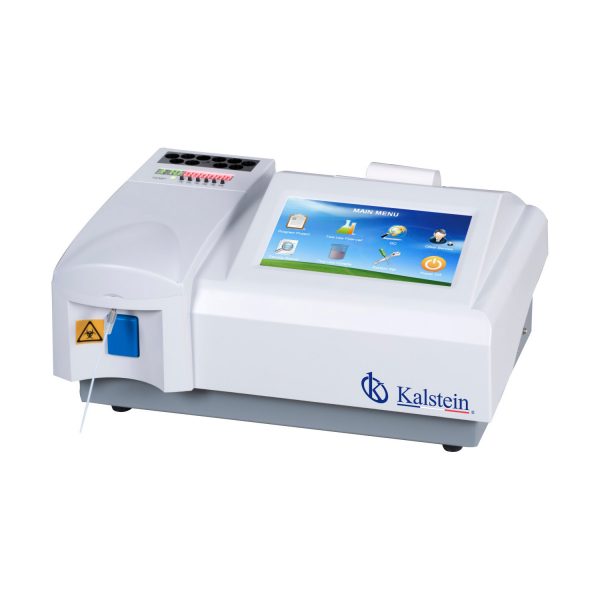Clinical chemistry analyzers are laboratory equipment that tests clinical samples such as blood serum, plasma, urine, and cerebrospinal fluid to detect analytes related to body metabolism, disease, or drugs. They are used in small clinics, research laboratories, and large clinical laboratories.
These kits allow the detection of analytes that commonly include enzymes, metabolic products, electrolytes, specific proteins, drugs of abuse and therapeutic drugs. The results provide information on kidney, heart, liver function and toxicological status.
Among the recommendations that are provided for the use of chemistry analyzers is that they have an adequate supply of water of the highest quality, use exclusively the reagents supplied or suggested by the commercial company, and that the laboratory staff be highly trained in Using equipment, these chemistry analyzers offer process speed, consistency of results, prevent cross contamination, protect operators from biohazard materials, and the ability to walk. Onboard refrigerated reagent storage, connection to a water supply and automated recalibration allow long periods of operation without intervention.
Benefits offered by chemical analyzers
The analyzers are highly automated to maximize performance, improve user safety against biological hazards, and decrease the risk of cross contamination. The samples are loaded into the equipment and the tests are scheduled by the user. A probe measures an aliquot of sample and places it in a reaction vessel. Reagents are added from a refrigerated supply on board. Incubation time is allowed, if necessary; then the photometric or ion selective electrode (ISE) test determines the analyte concentration. Results are displayed on the screen or sent to a printer or computer.
Care for chemical analyzers
This type of analyzers need both preventive and corrective maintenance. The first has the advantage that it allows adequate continuity in the operation of the equipment, reducing the frequency, duration and cost of interruptions for repairs, improving the quality of service that the laboratory can provide.
It is important to know that proper hygiene and handling of this equipment can significantly extend its useful life. In the same way, the maintenance of the chemical analyzers must be carried out in the hands of a professional from time to time; depending on use and model. Visit HERE

